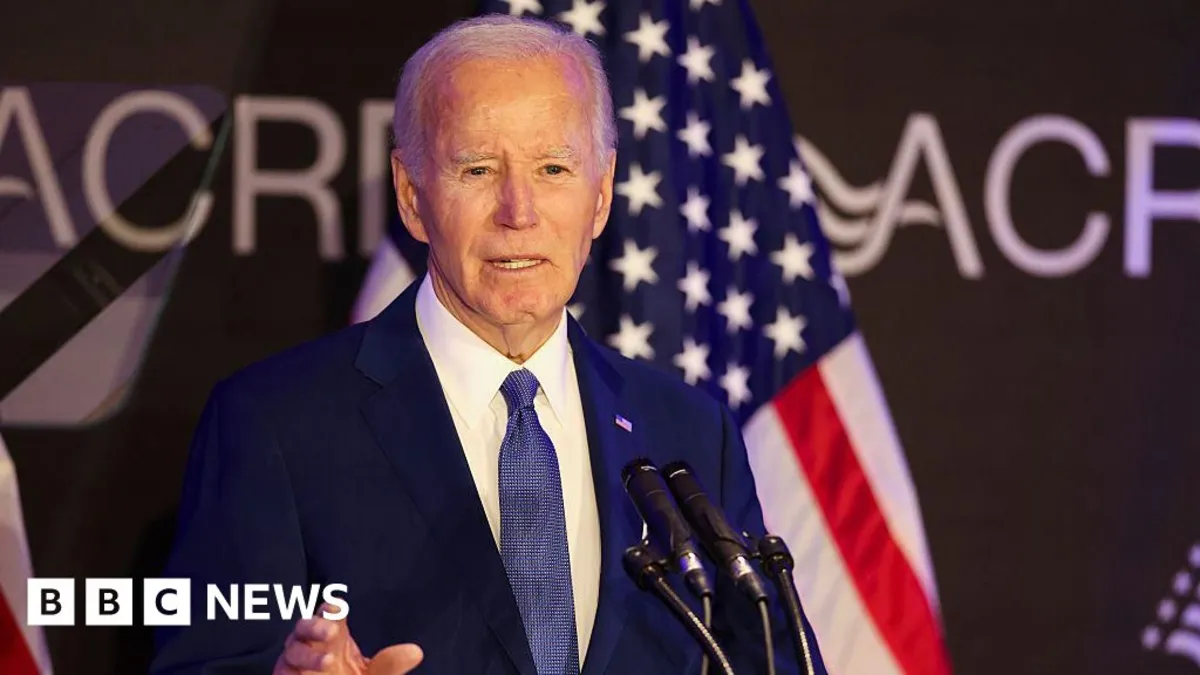
Former U.S. President Joe Biden has been diagnosed with prostate cancer that has unfortunately spread to his bones, according to a statement from his office released on Sunday. The diagnosis came on Friday after Biden, aged 82, consulted a doctor for urinary symptoms earlier in the week. The form of cancer he is facing is classified as more aggressive, with a Gleason score of 9 out of 10, indicating a high-grade status that suggests the cancer cells could spread rapidly, as noted by Cancer Research UK.
Biden and his family are currently reviewing potential treatment options for this serious medical condition. According to his office, the cancer is hormone-sensitive, which means it may be manageable with appropriate therapies. This aspect offers a glimmer of hope for the former president and his loved ones as they navigate this challenging time.
In the wake of Biden's diagnosis, he has received an outpouring of support from figures across the political spectrum. Former President Donald Trump expressed his sadness on his social media platform, Truth Social, stating that he and First Lady Melania Trump are saddened by the news. He extended warm wishes to Jill Biden and the family, hoping for a swift recovery for Joe.
Democratic House Representative Ro Khanna also took to social media platform X, sharing his prayers for Biden and his family. He remarked on their resilience, stating, "They have always been fighters, and I am confident they will meet this challenge with grit and grace."
This diagnosis comes nearly a year after Biden made the decision to withdraw from the 2024 U.S. presidential election due to ongoing concerns about his health and age. As the oldest person ever to hold the office, Biden faced significant scrutiny regarding his performance, particularly after a televised debate against current President Trump in June, which raised questions about his candidacy. Ultimately, he was replaced by Vice President Kamala Harris as the Democratic nominee.
Prostate cancer is the second most common cancer affecting men, trailing only behind skin cancer, according to the Cleveland Clinic. The Centers for Disease Control and Prevention (CDC) reports that approximately 13 out of every 100 men will develop prostate cancer at some point during their lives, with age being the most significant risk factor.
Since leaving the White House, Biden has largely stayed out of the public eye, making only a handful of appearances. He delivered a keynote speech in April at a Chicago conference organized by the Advocates, Counselors, and Representatives for the Disabled, a U.S.-based advocacy group. In May, he participated in an interview with the BBC, during which he discussed the difficult decision to withdraw from the 2024 race.
In recent months, Biden has faced numerous questions regarding his health status. During an appearance on The View in May, he firmly denied allegations of experiencing cognitive decline, stating, "There is nothing to sustain that."
For many years, Biden has been a staunch advocate for cancer research. In 2022, he and Jill Biden relaunched the Cancer Moonshot initiative, aiming to mobilize research efforts to prevent over four million cancer deaths by the year 2047. This personal connection to cancer is profound for Biden, who lost his eldest son, Beau Biden, to brain cancer in 2015.